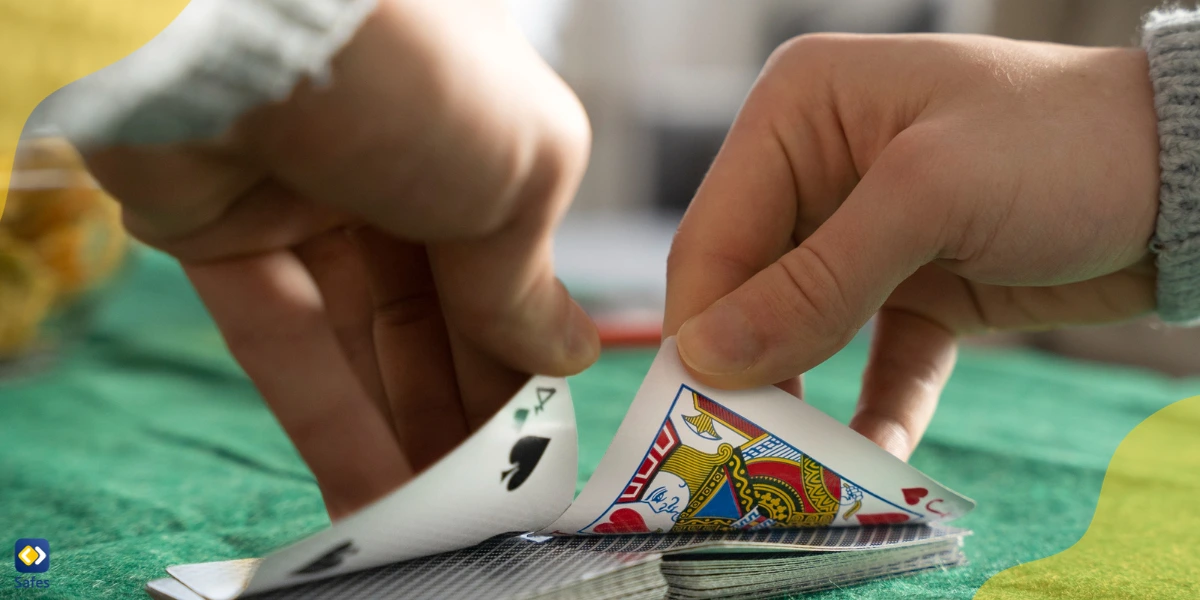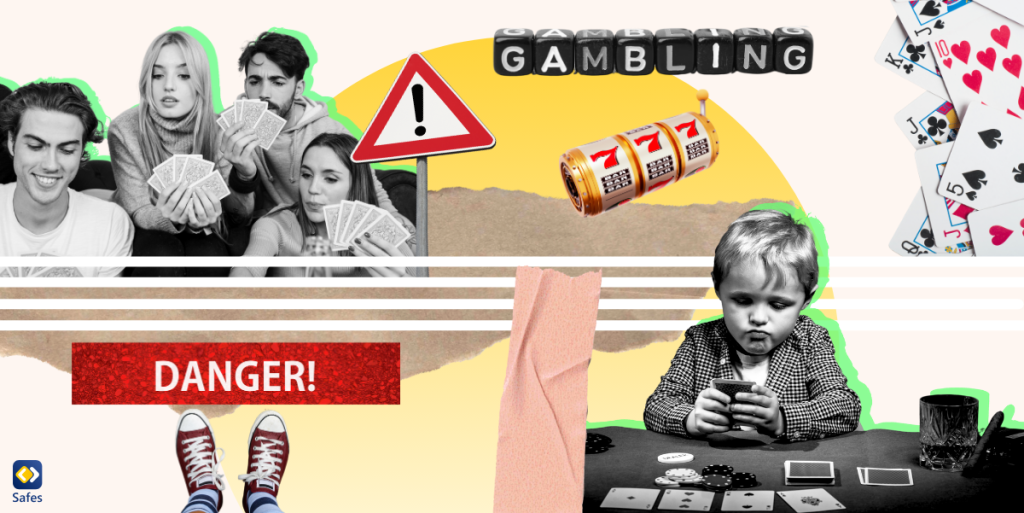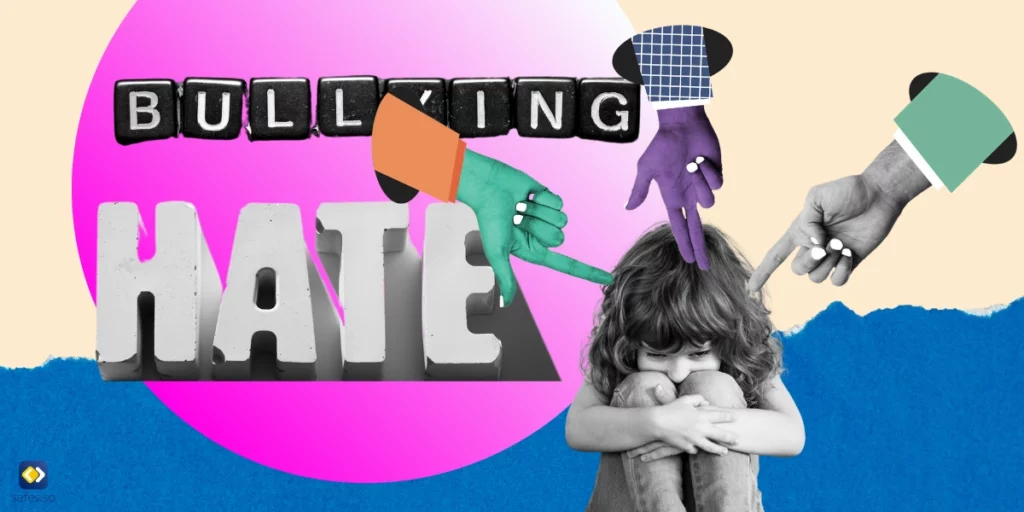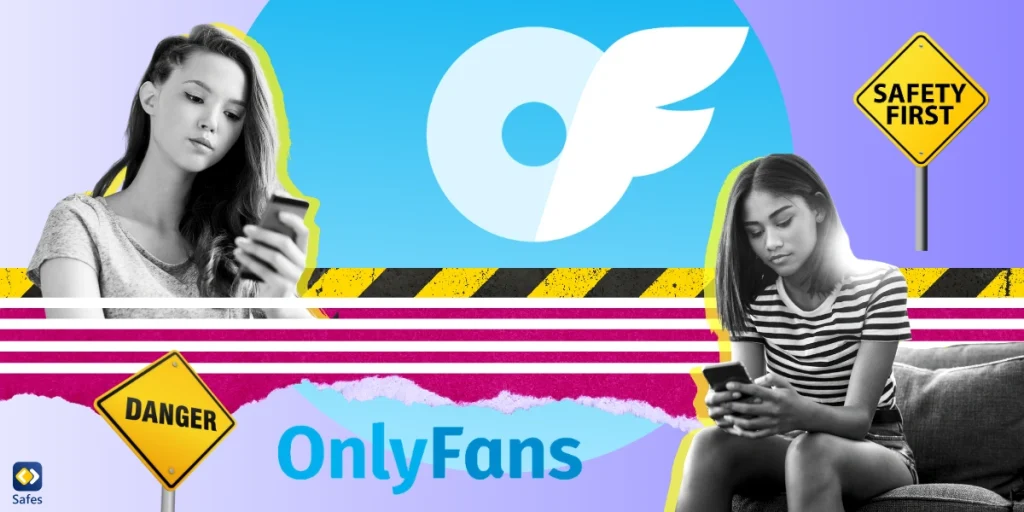Underage gambling has become a pressing issue that affects the well-being of our youth. In this blog, we aim to inform and empower parents and educators with practical strategies to protect kids and teenagers from the risks associated with gambling before they reach legal age. An important tool in this endeavor is our parental control app, Safes, which helps you monitor and manage online activities. Here, we delve into understanding, preventing, and addressing the dangers of underage gambling, ensuring a safer environment for our children’s growth and development.
Understanding Underage Gambling
Before getting into the nitty-gritty of dealing with teen gambling, let’s take a look at some problem gambling facts.
The Rising Concern of Underage Gambling
Underage gambling, a growing concern worldwide, is defined as any form of gambling by individuals under the legal age, typically 18 or 21. Recent statistics in the UK reveal that 26% of 11 to 17-year-olds had engaged in gambling activities over the past year, a decrease from previous years, yet still significant. Examples of gambling include legal activities like arcade gaming machines, betting with friends or family, and playing cards for money. The prevalence of online gambling, which encompasses online betting, social media games, and loot boxes, is notably on the rise among the younger population. With 53% of young people exposed to online gambling advertisements, the allure of these activities is evident, as many perceive them as fun, despite less than one in five finding true happiness in them.

The Harmful Impacts of Early Gambling Exposure
The negative implications of underage gambling are profound, particularly on mental health and academic performance. Children and adolescents are especially at risk because of their incomplete brain development, cognitive immaturity, and susceptibility to peer pressure and marketing ploys. People gambling are more likely to have lower self-esteem, a history of hyperactivity, impulsivity, and less parental supervision. They often come from families where gambling is prevalent.
In terms of academic performance, gambling is associated with poor results. High school students engaged in gambling exhibit reduced study time, leading to lower academic achievements. The intricate link between problem gambling and educational setbacks is echoed across various studies. These include associations with school truancy, financial issues, depressive symptoms, and even suicidal tendencies. Furthermore, excessive gambling negatively impacts the academic lives of university students, suggesting a need for targeted policies and programs to mitigate these effects.
Finally, the risk of developing gambling disorders in this demographic is alarming. An estimated 0.7% of young people are gambling addicts, with an additional 1.5% in danger. This risk is exacerbated by greater exposure to gambling through family members and the internet, emphasizing the vital need for awareness and preventative actions in today’s digital era to ensure there is no chance of gambling for kids.
Strategies for Prevention and Support
As there are different types of gambling, there are also different ways to tackle gambling issues kids and teens might face. Family and friends can play an important role in this regard.
Recognizing Signs of Gambling in Youth
Recognizing gambling behavior in youth is crucial to prevent addiction and other adverse effects that might come later, such as substance abuse. Look for signs like phone addiction, constant planning of gambling activities, an increasing need for gambling money, and unsuccessful attempts to stop. Also, be aware of restlessness or irritability when unable to gamble, and lying to conceal the extent of gambling. These behaviors might indicate a deeper issue of compulsive gambling. Additionally, changes in sleep patterns, mood swings, falling school marks, withdrawal from friends, or a newfound focus on sports odds can also signal a gambling problem.

Conversations and Prevention: Empowering Parents and Educators
Initiating conversations about gambling should happen in relaxed environments, like during a walk or after watching a show. Keep discussions light and conversational, actively listening to your child’s responses. Short, direct talks are more effective than long lectures. Tailoring conversations to your child’s interests, like discussing loot boxes in viral video games or eSports betting, can make the discussion more relatable. Discuss the risks associated with non-casino games, such as scratch tickets, sports betting, online gambling, and gaming. Explain the hidden signs of gambling problems, like hiding debts or skipping classes, and lead by example, demonstrating responsible gambling behavior.
Safes: A Powerful Tool in Battling Underage Gambling
A parental control app like Safes offers comprehensive monitoring and control over a child’s online activities, beyond options available in Macbook parental controls. They allow parents to monitor everything the child does on their phone or computer, control screen time, limit video game playing, and ensure phones are not used at night with Night Mode. This app also provides real-time notifications if a child’s online safety is compromised, tracks social media usage, filters out inappropriate content, and blocks unsuitable online games or apps. Parents can access their child’s browsing history and even track their real-time location. Safes is available on iOS and Android. Sign up for a free trial with Safes to access tools and resources that help you protect your children from gambling-related dangers.
Resources and Support for Parents
Parents can educate themselves about gambling risks by comparing the odds of winning to more familiar risks, discussing how gambling companies are structured for profit, and addressing family attitudes towards gambling. For online gambling, talk about quality media choices and encourage a balanced approach to screen use. Setting family rules for screen and internet use, including limits on online gambling activities and the use of credit cards in games, can also help. If needed, parents can seek council on problem gambling from psychologists, general practitioners, or local problem gambling services, with helplines and online support also available.
Conclusion
Raising awareness and taking proactive measures are key to preventing underage gambling. Tools like Safes, coupled with ongoing education, empower parents and educators to effectively monitor and guide young people. The journey to safeguard our children and adolescents from the risks of underage gambling is a collective responsibility. By staying informed and vigilant, and utilizing the right tools and resources, we can create a safer and more supportive environment for our youth, steering them towards healthier choices and a brighter future.




